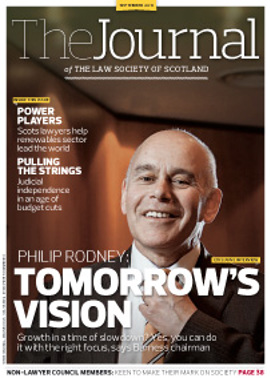Directors: to be, or not to be?

When determining whether someone is a de facto director, the main questions a court would ask are: “Does the alleged director act as a director, or exert any ‘real influence’ over the corporate governance of the company?” That seems to be the main lesson from Re Mumtaz Properties Ltd [2011] EWCA Civ 610.
De facto or de jure?
There are different uses of the word “director” which can easily be confused.
So, de facto directors are persons who act as directors but have not been “properly” appointed, in contrast to de jure directors. Executive directors are directors that carry out managerial functions in a company and are likely to be employed by the company; non-executive directors tend not to be employed by the company and act as independent advisers/supervisors. Corporate directors are companies who act as directors of another company; and alternate directors are persons – usually other directors or persons appointed by the board – who are appointed by a director to act in his/her place if he/she is absent from a meeting. All of these would – usually – be de jure directors. For more information on why “usually”, see Holland v Commissioners for HMRC [2010] UKSC 51.
Shadow directors are persons in accordance with whose directions/instructions the directors of a company are accustomed to act, and are – usually – de facto directors.
The most important point to remember is that almost all types of directors need to comply with the various duties owed to the company and its shareholders (or members). Certain of the fiduciary duties which directors owe to their companies (for example, exercising independent judgment, avoiding conflicts of interest, and so on) were codified in the Companies Act 2006. However the codified duties are not exhaustive, and attention must be paid to the common law rules and to other sections of the 2006 Act.
Mumtaz: extent of influence
Following from insolvency proceedings brought by liquidators of Mumtaz, the Court of Appeal considered whether a grandson was a de facto director of the family company, and therefore liable to repay monies owed to the company on a director’s loan account.
The court looked at various factors, including the grandson’s credit card, director’s loan account and involvement in running the company (for example, dealing with suppliers and local authorities), and also considered oral evidence. There were no documents or paperwork to prove that the grandson was officially appointed (such as Companies House forms, minutes etc). However the court found that he had influence over the governance of the company and could be regarded as “one of the nerve centres” from which the company’s conduct was determined.
In Re Duomatic Ltd [1969] 2 Ch 365, a “meeting of minds” between shareholders was used to prove that an agreement had taken place, notwithstanding the absence of formal paperwork – the Duomatic principle. The decision in Mumtaz arguably extends this principle.
In another similar case, Brown v Button [2011] EWHC 1034 (Ch), liquidators tried to argue that Mumtaz was authority for the continuing duty of a director to recover unlawful loans (to get past a time bar issue). The court did not agree with that point, but considered that a breach of fiduciary duty was equivalent to a breach of trust, and as the claim related to trust property (the directors’ loans), time bar did not apply.
Note that these cases concern insolvent companies, but fiduciary duties still have consequences for being – or more importantly, acting as – a director, especially for family companies. The 2006 Act is clear in the breadth of interpretation of what constitutes a director when it states that a director “includes any person occupying the position of director, by whatever name called” (s 250).
Advisers should try to persuade clients to focus and document their true intentions at the outset of their involvement with companies. Better to face this issue head on, before the slings and arrows of outrageous fortune catch up with the de facto directors, as they did in Mumtaz.
In this issue
- Maxwell Fyfe and the origins of the ECHR
- Introducing the European Law Institute
- Social media are here to stay
- Property points
- Paving the way for a new approach to elderly care
- Fair trial for the European Court of Human Rights
- Stalking: the hidden dangers, the silent crime
- Paul Wade: An appreciation
- Opinion
- Book reviews
- Reading for pleasure
- Council profile
- President's column
- Finger on the pulse
- Sharper focus
- The ties that bind
- Trawling for revenue
- The generation game
- Through the hoops
- Directors: to be, or not to be?
- Shoe stoppers
- Selection blues
- Conference calling
- ARTL: is there a fix?
- Building a better Buildmark
- Secure knowledge
- Key changes in compliance
- Guarantee Fund costs change
- Law reform update
- Strangers in the House
- Property points (1)
- Ask Ash
- Debt and asset recovery specialism goes live






